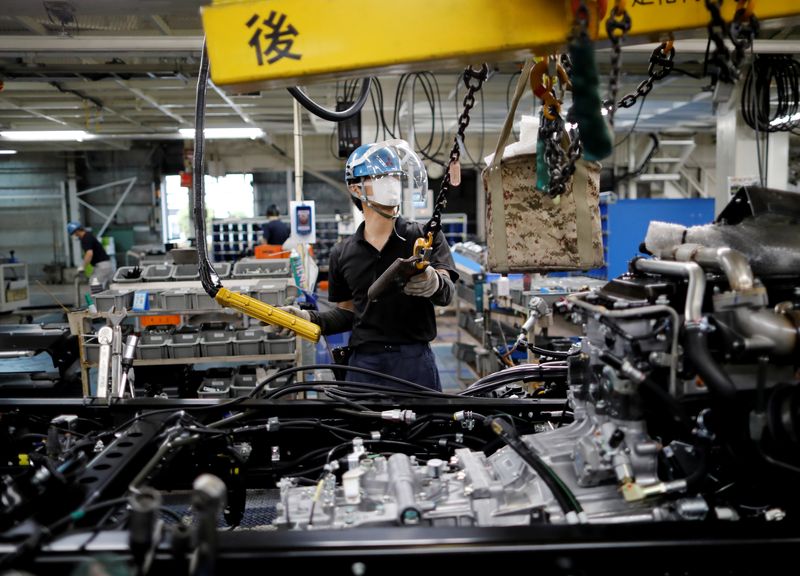Select Language

By Kantaro Komiya
TOKYO (Reuters) - Japan's factory sentiment likely improved in the second quarter for the first time since mid-2021, thanks to an eased chip supply crunch for automakers, a Reuters poll of economists showed on Friday.
While slowing global demand has dragged on manufacturers' recovery, the service-sector mood is expected to have extended gains above pre-pandemic levels led by a tourism boom, helping to underpin the world's third-largest economy.
The Bank of Japan's (BOJ) closely-followed "tankan" business survey is set to show the big manufacturers' confidence index rebounded to 3 in June from 1 in March, according to the median estimate of 16 economists in the poll.
It would mark the index's first increase in seven quarters.
"Although sentiment deteriorated among sectors like chemicals and production machinery on global economic slowdown, car makers' mood greatly improved thanks to mitigated semiconductor shortage," said Shumpei Fujita, economist at Mitsubishi UFJ (NYSE:MUFG) Research and Consulting.
Staying on a solid course, the big non-manufacturers' mood index likely rose for a fifth quarter to 22, the highest since June 2019, from 20, the poll showed, with analysts citing strong inbound tourist demand and the government's May decision to downgrade COVID-19's disease classification.
Looking ahead, manufacturers would see further improvement in their sentiment three months ahead, while service-sector companies' confidence would worsen slightly due to consumer inflation running at over four decade highs.
The tankan will also show large firms plan to ramp up capital expenditure by 10.1% in the current fiscal year, according to the poll, well above the 3.2% increase projected in the March survey.
The BOJ will release the latest tankan results on July 3 at 8:50 a.m. local time (July 2 at 2350 GMT).
Separate industrial output data due on June 30 at 8:50 a.m. (June 29, 2350 GMT) will likely show a 1.0% month-on-month decrease in May, the first contraction in four months, hurt by the slackening in global demand.
For May, jobless and job availability indicators were seen unchanged, while retail sales likely rose 5.4% from a year earlier for their 15th month of expansion, the poll also found.

